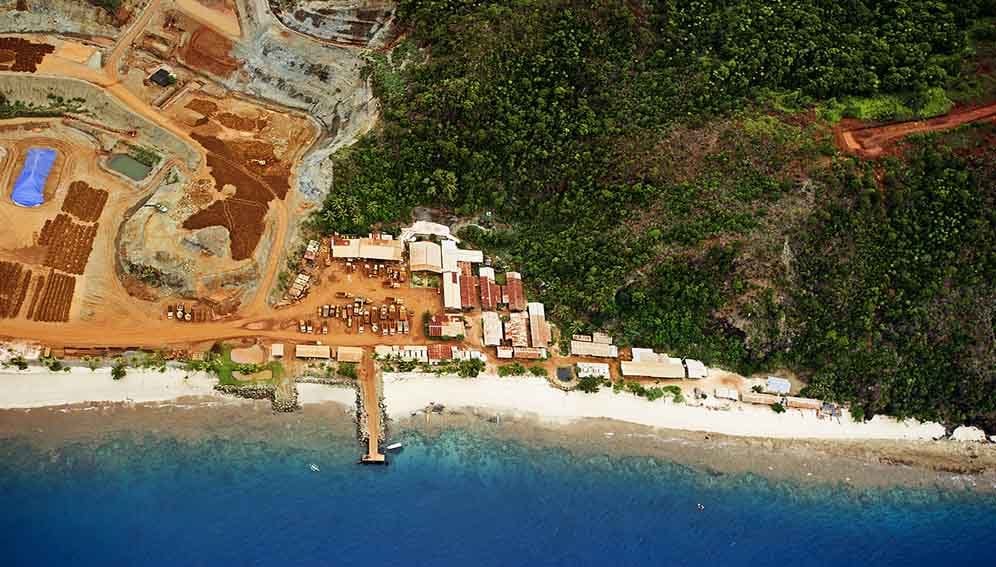By: Lisbeth Fog
Send to a friend
The details you provide on this page will not be used to send unsolicited email, and will not be sold to a 3rd party. See privacy policy.
[MEDELLÍN] The planet's biodiversity is being lost faster than it recovers, with developing regions expected to bear the brunt of future soil degradation, warns a global assessment report produced by hundreds of scientists, government officials and civil society.
Forty per cent of the biodiversity in the Americas will be lost by 2050, according to figures released during the Sixth Plenary session of the Intergovernmental Science-Policy Platform on Biodiversity and Ecosystem Services (IPBES), which brought together some 550 researchers and officials from 129 countries this month (March 17-24) in Medellin, Colombia.
Four regional assessment reports were approved at the meeting, covering biodiversity and ecosystem services in Africa, the Americas, Asia and the Pacific, Central Asia and Europe. The work took three years of collaboration between hundreds of researchers, decision makers, and civil society.
“If we continue to lose biodiversity we will not meet the Sustainable Development Goals.”
Sir Robert Watson
A fifth report, due to be presented today, dealt with land degradation and restoration. The IPBES says soil degradation undermines the well-being of at least 3.2 billion people globally, with most future degradation expected to occur in Central and South America, Sub-Saharan Africa and Asia.
Sir Robert Watson, the chair of IPBES, recognises the progress made in preventing biodiversity loss but says it is not enough. Although there are knowledge gaps, “we know enough to manage our biodiversity much better than we currently are.“
“The time for action is now,” said Watson at a press conference. “Actually it was yesterday and the day before yesterday.”
"If we continue to lose biodiversity we will not meet the Sustainable Development Goals," he stressed.
The figures spell out an alarming situation in the Americas, which host seven out of the 17 most biodiverse countries of the world. In just 50 years, since 1960, the amount of potable water available per person across the continent has been reduced by 50 per cent; and the ‘ecological footprint’ of human activities in the region grew between 200 and 300 per cent.
Since the time of European colonisation, 88 per cent of the Atlantic forest has been destroyed by human activity, according to the assessment.
“A person walking through a natural area today is going to see 30 per cent less biodiversity than they would have at a time of the European settlement“, said Jake Rice, co-chair of the IPBES assessment for the Americas. “By 2050 it will go up to 40 per cent, under a business as usual scenario. There is where we are heading“.
Overfishing, for example, has reduced fish stocks by 20-70 per cent in the last few decades, altering ecosystems’ productivity and functions in many marine and some freshwater systems.
Rice also pointed out that the distribution of benefits from use of natural resources is uneven among the people and cultures of the Americas. The Americas account for 23 per cent of the global ecological footprint, and North America is responsible for 63 per cent of that proportion even though it represents only 36 per cent of the population across the continent.
Less than a quarter of Earth's land surface remains free of substantial human impacts, and the report estimates that by 2050 this will drop below 10 per cent. "The desert of La Guajira, in Colombia, will be uninhabitable in a few years," Brigitte Baptiste, a member of the IPBES Multisectorial Panel, told SciDev.Net.
Loss of biodiversity and degradation of soils, both due to human activity, are pushing the planet towards a sixth mass extinction of species, according to the report. And by 2050, land degradation and climate change are expected to reduce crop yields by an average of 10 per cent worldwide. This will likely force some 50 to 700 million people to migrate.
Despite the gloomy scenarios, there was some optimism in Medellin, which delegates attributed to the inclusive process of producing and disseminating the documents approved by the IPBES.
Christopher Anderson, a representative of the Argentine government and one of the authors of the assessment from the Americas, told SciDev.Net that it was "a process of co-production of knowledge" that began with questions raised by governments and gathered input from other sectors, such as NGOs and indigenous groups.
Marcos Regis da Silva, director of the intergovernmental organisation Inter-American Institute for Global Change Research (IAI), said the IAI, is supporting the IPBES ”to take the results of the research and … make them digestable to policy makers for them to be able to make more effective policy decisions“.Watson told SciDev.Net that the IPBES will continue to disseminate the results of the assessment, including at the level of children in schools: "We are only starting a journey to make sure that we can get these messages into the public, into governments, into the private sector."
A summary for policymakers of each of the reports has been made available online, with the complete reports expected later this year.
IAI is one of SciDev.Net’s donors.
This article was produced by SciDev.Net’s Latin American & Caribbean desk.














